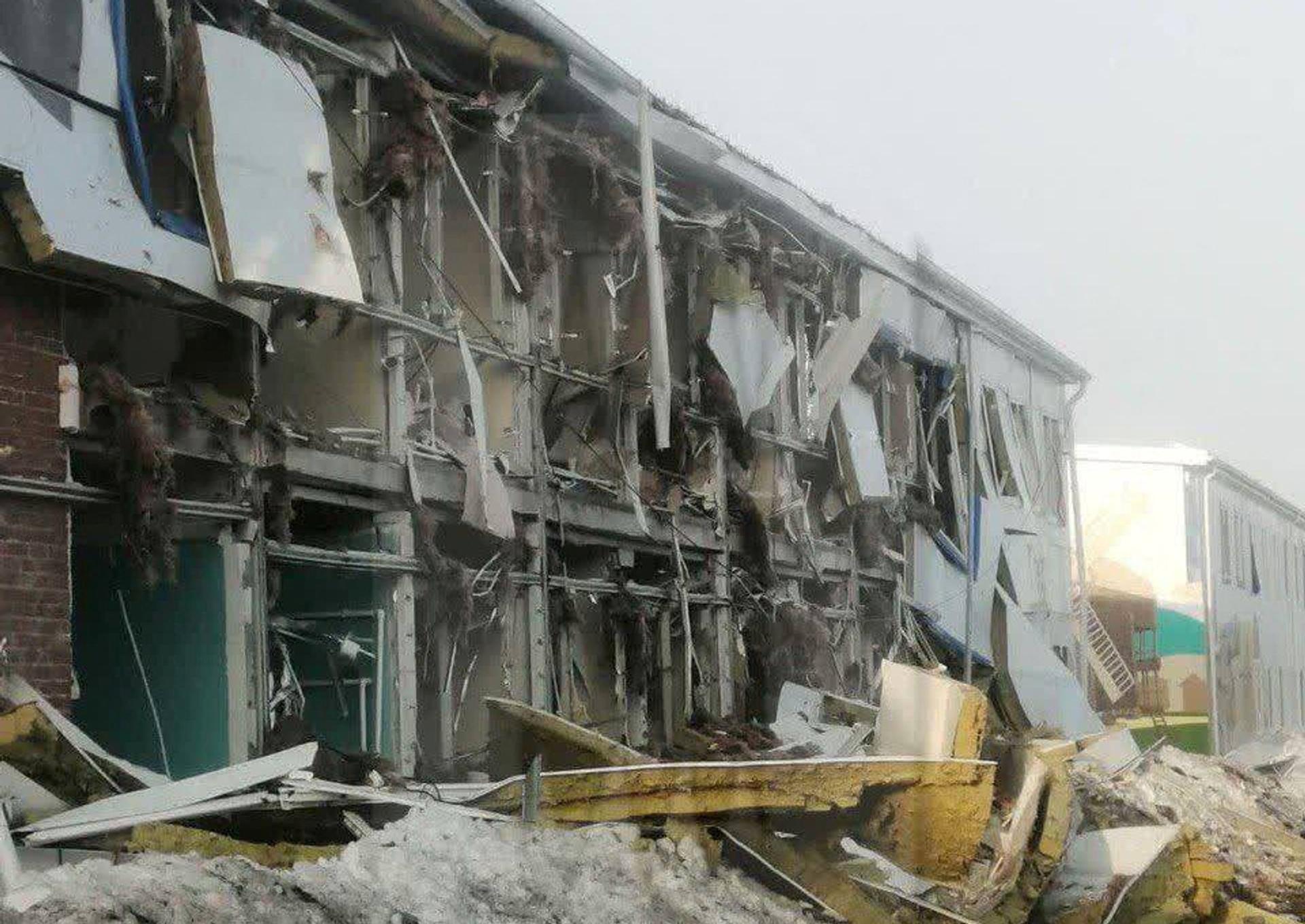Semafor Signals
Supported by
Europe, US divided over support for Ukraine’s strikes on Russian oil
Insights from the The Washington Post, Kyiv Post, and the Institute for the Study of War

The News
Repeated Ukrainian strikes on oil refineries inside Russia have drawn contrasting reactions from the United States and Europe, with Washington calling for a halt to the attacks while a host of European leaders have largely accepted Kyiv’s right to defend itself.
U.S. Vice President Kamala Harris called on Volodymyr Zelenskyy to stop the attacks in March, The Washington Post reported, while U.S. officials warned in hearings last week that the attacks risk destabilizing oil prices and could violate international law, amid concern about strikes on civilian targets.
By contrast, European officials have expressed few qualms about Ukraine’s strike campaign on Russian energy infrastructure, which has seen more than a dozen oil refineries targeted and is estimated to have disrupted at least 10% of Russia’s refinery capacity.
Officials from at least eight European countries have refrained from condemning the strikes in public statements or interviews with Semafor, with responses ranging from active encouragement to a cautious acceptance of Ukraine’s efforts to disrupt Russia’s oil industry.
With Russia carrying out a sustained assault on energy infrastructure that destroyed Kyiv’s largest power plant earlier in April, “Ukrainians have the right to do the same,” Estonia’s Defense Minister Hanno Pevkur told reporters last week.
“Estonia has always supported decreasing Russian oil and gas revenues,” Estonia’s Foreign Minister Margus Tsahkna told Semafor, noting that strikes on legitimate targets in Russia could serve that purpose.
Russian President Vladimir Putin has said Russia has been forced to respond to Ukraine’s attacks on oil refineries by launching strikes on Ukrainian energy sites. Moscow started targeting Ukrainian energy facilities more than a year before Kyiv launched its campaign on Russian soil.
SIGNALS
European countries broadly accept Kyiv’s right to strike
Eastern European countries have been especially assertive about Ukraine’s right to hit targets in Russia. A Polish Ministry of Foreign affairs spokesperson told Semafor that Ukraine can strike “all the targets of the invader” that do not violate international law, while a spokesperson for the Latvian Ministry of Foreign Affairs said “Ukraine has the right to strike military targets on Russian territory,” noting that Riga has not set limits on how Kyiv uses weapons it has provided. “In WWII the Allies bombed Nazi Germany’s oil depots as a high priority military target. That’s the tweet,” Lithuania’s Foreign Minister wrote on X last week.
Western European officials have also refrained from condemning the attacks. When asked about the strikes on oil infrastructure, Norwegian Defense Minister Bjørn Arild Gram told Semafor that while Norway did not have a specific stance on the issue, “there is no doubt that Ukraine, according to international law, has the right to defend itself, including striking back at targets in Russia. But it has to be in accordance with international law.” The British and French foreign ministers have also signaled tacit support for the campaign.
US fears a rise in oil prices
U.S. officials have repeatedly expressed concern over the strikes, saying that they fear a successful Ukrainian campaign could cause global oil prices to rise. “An increase in energy prices risks dampening European support for Ukraine aid,” a senior U.S. official told The Washington Post. Defense Secretary Lloyd Austin told lawmakers last week that “Ukraine is better served in going after tactical and operational targets that can directly influence the current fight.” However, Republican Senator Tom Cotton pushed back against Austin’s comments, saying that “it sounds to me that the Biden administration doesn’t want gas prices to go up in an election year.”
The attacks could actually lower energy prices,Estonia’s Defense Minister Pevkur said, because “when Russians do not have the refineries, that means they have to sell the raw oil for a cheaper price,” reducing the price of crude on the global market.
Ukraine seeks to legitimize taking the war to Russia
Ukrainian officials have said that the strikes are aimed at degrading Russia’s war economy and deterring strikes on Ukrainian energy infrastructure, which have been pummeled by Russian strikes in recent months. The strikes may also serve another purpose, as Ukraine seeks to shift the terms of debate in Western capitals about attacks on Russian soil, the Institute for the Study of War’s George Barros told Semafor. Ukraine “is trying to demonstrate that [they] can indeed target legitimate military infrastructure, military targets, and dual-use infrastructure within Russia, and it doesn’t result with there being some catastrophic Russian retaliation,” he said.
